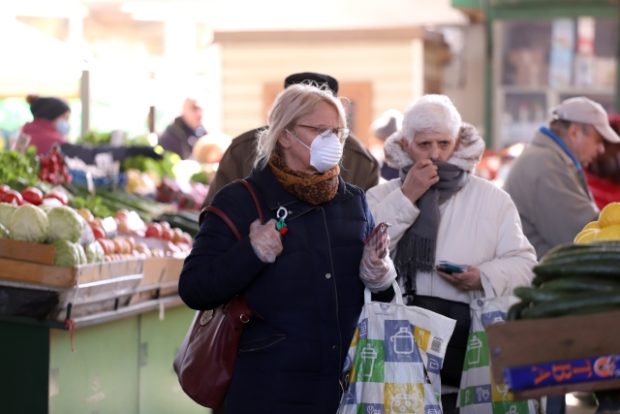Carrying genes linked to dementia could increase the risk of severe COVID-19, says study

Carrying the genes linked to dementia could increase the risk of severe COVID-19, according to new research. Image: Istock.com/Radila Radilova via AFP Relaxnews
New research has found that carrying faulty copies of a gene linked to dementia could double an individual’s risk of severe COVID-19.
Carried out by researchers at the University of Exeter Medical School in the United Kingdom and the University of Connecticut School of Medicine, United States, the new study looked at data on 382,188 people of European ancestry aged 48 to 86 who were participating in U.K. Biobank, a study which includes genomic data on more than half a million U.K. residents.
The team looked at which participants had two faulty copies of the APOE gene (termed e4e4), which is known to increase the risk of Alzheimer’s disease and heart disease and is carried by one in 36 people of European ancestry.
They also looked at who had been exposed to the COVID-19 virus.
The findings, published in the Journal of Gerontology: Medical Sciences, showed that people with the APOE e4e4 genotype had double the risk of developing severe COVID-19, compared to those with the common e3e3 form of the APOE gene.
Moreover, carrying the faulty genes increased the risk even if the participants had not developed Alzheimer’s or heart disease.
The results are in line with previous research from the same team which suggested that people with dementia are three times more likely to get severe COVID-19, while another U.K. study cited by the researchers showed that among 16,749 patients hospitalized for COVID-19 those who had dementia also had a greater risk of death. However, individuals with dementia are not one of the at-risk groups who are encouraged to stay at home because of a pre-existing condition.
“This is an exciting result because we might now be able to pinpoint how this faulty gene causes vulnerability to COVID-19,” said co-author Dr. Chia-Ling Kuo. “This could lead to new ideas for treatments. It’s also important because it shows again that increasing disease risks that appear inevitable with aging might actually be due to specific biological differences, which could help us understand why some people stay active to age 100 and beyond, while others become disabled and die in their 60s.”
Lead author Professor David Melzer also commented on the findings saying “Several studies have now shown that people with dementia are at high risk of developing severe COVID-19. This study suggests that this high risk may not simply be due to the effects of dementia, advancing age or frailty, or exposure to the virus in care homes.”
“The effect could be partly due to this underlying genetic change, which puts them at risk for both COVID-19 and dementia.” RGA
RELATED STORIES:
Including more berries, apples and tea in the diet could protect against Alzheimer’s — study
For more news about the novel coronavirus click here.
What you need to know about Coronavirus.
For more information on COVID-19, call the DOH Hotline: (02) 86517800 local 1149/1150.
The Inquirer Foundation supports our healthcare frontliners and is still accepting cash donations to be deposited at Banco de Oro (BDO) current account #007960018860 or donate through PayMaya using this link.